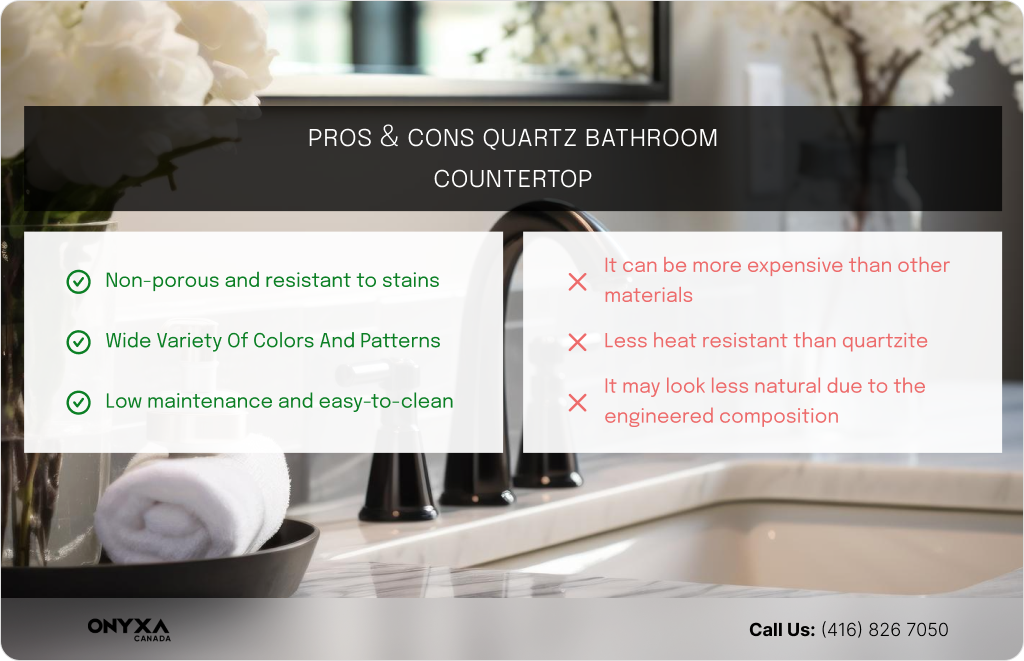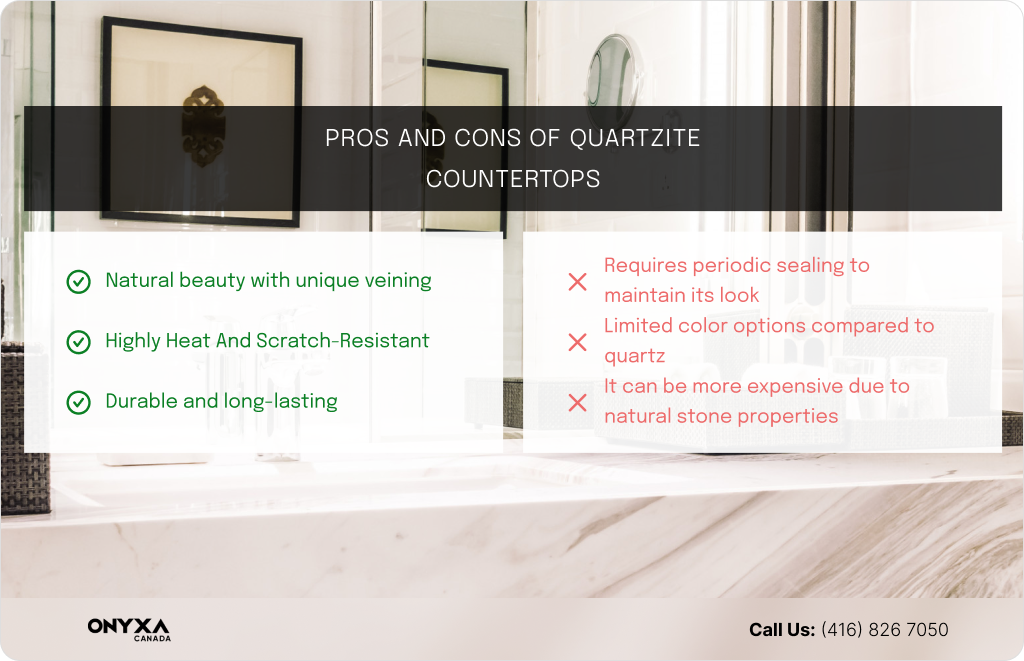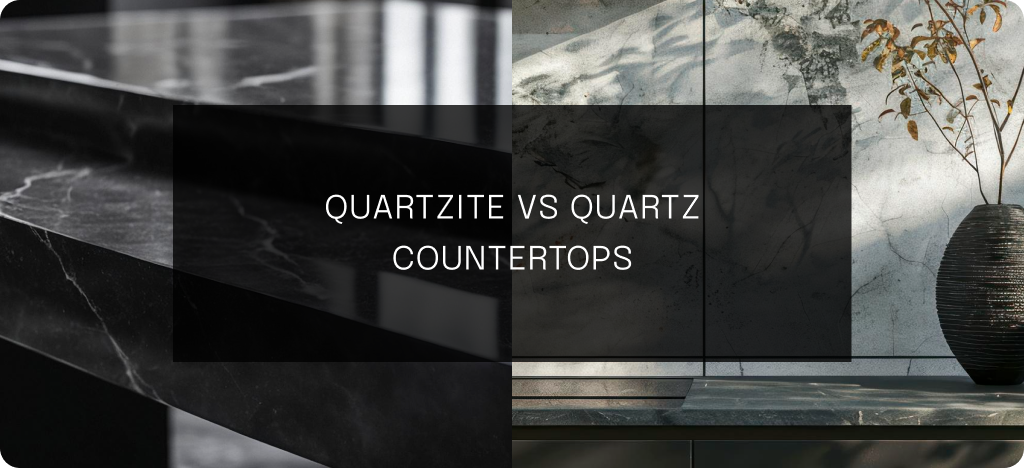Quartz vs. Quartzite Countertops: Which is Right for Your Home?
Choosing the perfect countertop for your home can be daunting, especially when faced with similarly named options like quartz and quartzite. These materials might sound alike, but they each offer unique features, benefits, and drawbacks that could make all the difference in your home’s aesthetic and functionality.
What makes quartz different from quartzite? Why do some homeowners swear by one while others are captivated by the other? This guide will unravel the mysteries behind these two stunning countertop options. Read on to discover the secrets to help you make the perfect choice for your space.
Everything About Quartz Countertops
Quartz countertops are a marvel of modern engineering, combining the beauty of natural stone with the durability of manufactured materials. Created by blending crushed quartz with high-performance resin, these countertops offer an exquisite, contemporary look that can transform any kitchen or bathroom. Available in a stunning array of colors and patterns, quartz countertops provide endless design possibilities to suit your style.
One of the most compelling features of quartz countertops from Onyxa is their non-porous nature. Quartz doesn’t require sealing, unlike natural stones, making it inherently resistant to stains, scratches, and bacterial growth. This means easier maintenance and a cleaner, healthier surface for your home.
Imagine a countertop that enhances the beauty of your space and withstands the demands of daily life with minimal upkeep. With the advanced technology behind Onyxa’s quartz countertops, you can enjoy elegance and practicality. Curious to learn more about how quartz can elevate your home? Keep reading to discover the innovative features and benefits that make quartz a top choice for modern interiors.
Nano Ink Quartz: A Cutting-Edge Solution
The Nano Ink Quartz surfaces from Onyxa are crafted with innovative nano-ink technology, offering unparalleled depth, vivid colors, and lifelike patterns. This advanced technology not only enhances visual appeal but also significantly improves durability.
Nano Ink Quartz offers a countertop that combines striking aesthetics with robust performance. It is ideal for modern and sophisticated spaces. Its enhanced design flexibility and long-lasting beauty make it a favorite among homeowners.
Are you interested in upgrading your home? Check out our Nano Ink Quartz collection to see why this cutting-edge solution makes interior design waves.
What is Quartzite?
Quartzite is a natural stone that begins its life as sandstone. Over time, intense heat and pressure transform it into a dense, durable material. Known for its stunning natural veining and unique patterns, quartzite offers a luxurious look that appeals to many homeowners.
While quartzite is highly resistant to heat and scratches, it does require regular sealing to maintain its appearance and prevent staining. Its beauty comes with a bit more maintenance compared to other materials. For those who love natural stone’s organic, one-of-a-kind aesthetic, quartzite can be a striking choice, though it may not be as low-maintenance as quartz.
Comparison of Quartz and Quartzite
When comparing quartz and quartzite countertops, several key factors come into play. Both materials have distinct advantages and some downsides that homeowners should consider. Understanding these differences will help you make an informed choice that best suits your needs, preferences, and lifestyle. Let’s dive into the specifics to see how quartz and quartzite measure up.
Pros and Cons of Quartz Countertops

Pros:
Non-porous and resistant to stains
Wide variety of colors and patterns
Low maintenance and easy-to-clean
Cons:
It can be more expensive than other materials
Less heat resistant than quartzite
It may look less natural due to the engineered composition
Pros and Cons of Quartzite Countertops

Pros:
Natural beauty with unique veining
Highly heat and scratch-resistant
Durable and long-lasting
Cons:
Requires periodic sealing to maintain its look
Limited color options compared to quartz
It can be more expensive due to natural stone properties
Choosing the Right Material for Your Needs
Visual Appeal: Which One Looks Better?
Quartz offers unmatched versatility and consistency. Made from crushed quartz and resin, these options come in a wide range of colors and patterns, making it easy to match any decor. This uniformity ensures a seamless and polished look.
In contrast, quartzite features natural veining and unique patterns, giving each slab a one-of-a-kind, organic beauty. While this can be appealing, finding a perfect match for your space may be harder.
Easy Cleaning: Maintenance Tips for Both Materials
Quartz is incredibly easy to maintain, thanks to its non-porous surfaces that resist stains and bacterial growth. A quick wipe with a damp cloth and mild soap keeps them looking pristine, and there’s no need for regular sealing.
On the other hand, quartzite, being a natural stone, is porous and requires regular sealing to prevent stains and damage. Daily cleaning of quartzite involves mild soap and water, avoiding harsh chemicals. For those seeking a low-maintenance option, quartz is the superior choice, offering practicality and ease compared to the more demanding upkeep of quartzite.
Cost Comparison: Budgeting for Quartz vs. Quartzite
When it comes to cost, quartz and quartzite, offer different budget considerations. Quartz is generally more affordable and provides excellent durability and low maintenance value. Quartz’s consistent pricing makes planning and budgeting for your project easier without surprises.
Quartzite, being a natural stone, tends to be more expensive due to its unique patterns and the intensive process required to extract and prepare it. Additionally, regular sealing and maintenance costs should be factored into the overall budget, making quartzite a pricier option in the long run.
For homeowners seeking a beautiful, durable, and cost-effective countertop, quartz is the more budget-friendly choice. They offer a stunning look without the higher price tag and ongoing maintenance costs associated with quartzite.
Installation Insights and Maintenance Tips
Professional installation is crucial for quartz due to its weight and the need for precise fitting. Quartz is easy to maintain—just clean with a damp cloth and mild soap, and avoid abrasive cleaners. Its non-porous nature means no sealing is required, simplifying upkeep.
Quartzite, while also needing professional installation, requires more maintenance. Regular sealing is necessary to prevent stains and damage, and it should be cleaned daily with mild soap and water, avoiding harsh chemicals. Resealing every six months to a year is recommended.
Conclusion: Which Countertop is Right for You?
Choosing between quartz and quartzite countertops depends on your priorities and lifestyle. Quartz slabs and Nano Ink Quartz from Onyxa offer a versatile, consistent look with a wide range of colors and patterns, making them easy to match with any decor. They are also non-porous, requiring minimal maintenance and no sealing, making them a practical and cost-effective choice for busy households.
Quartzite, with its natural beauty and unique veining, appeals to those who prefer the organic look of natural stone. However, due to its natural properties and extraction process, it requires more maintenance, including regular sealing, and tends to be more expensive.
For homeowners looking for a durable, easy-to-maintain, and budget-friendly option, quartz countertops are the clear winner. They provide a stunning and practical solution without the higher price tag and ongoing maintenance costs associated with quartzite. Ultimately, the best choice depends on your personal preferences and the specific needs of your home.
Ready to transform your space with the perfect countertop? Call us now to explore our range of quartz and Nano Ink Quartz options and find the ideal fit for your home.
+1 (416) 854.8645
FAQ
What are the main differences between quartz and quartzite?
Quartz is an engineered material known for its consistent look and wide range of colors and patterns. Quartzite is a natural stone characterized by its unique veining and one-of-a-kind patterns.
Which is more durable: quartz or quartzite?
Quartzite is more durable, especially in terms of heat and scratch resistance. Its natural hardness makes it highly resistant to scratches and able to withstand high temperatures. Quartz, while also durable, can be more susceptible to heat damage and scratches but offers excellent stain resistance and low maintenance.
How do I care for quartz countertops?
Quartz countertops are easy to maintain. They can be cleaned with mild soap and water, but avoid using abrasive cleaners.
How do I care for quartzite countertops?
Quartzite requires periodic sealing to protect against stains. It should be cleaned with mild soap and water, and harsh chemicals should be avoided.
Which material is more cost-effective?
Quartz is generally more affordable and has consistent pricing. Quartzite, a natural stone, tends to be more expensive due to its unique properties and the extra maintenance required.
